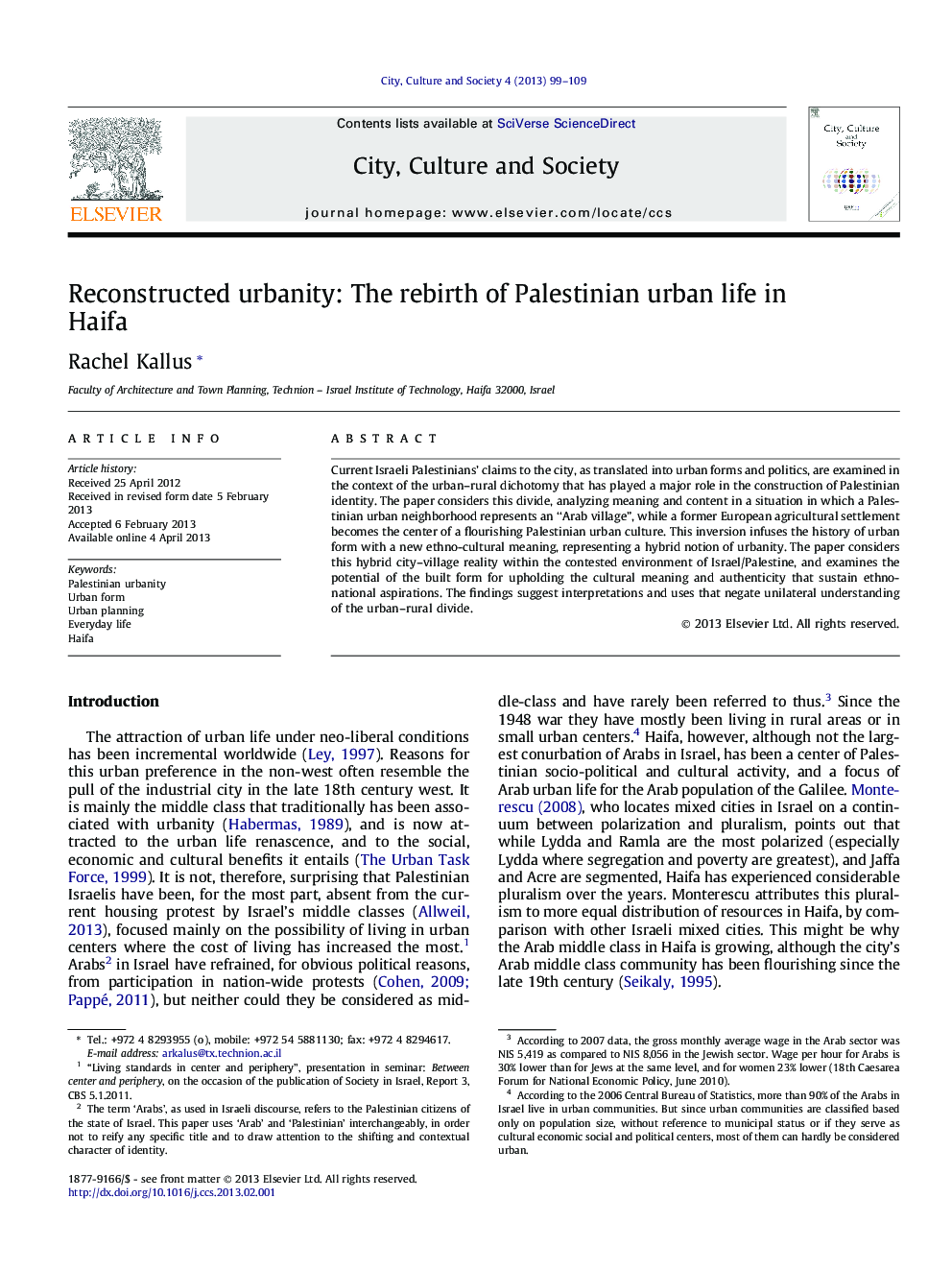| Article ID | Journal | Published Year | Pages | File Type |
|---|---|---|---|---|
| 5048374 | City, Culture and Society | 2013 | 11 Pages |
Current Israeli Palestinians' claims to the city, as translated into urban forms and politics, are examined in the context of the urban-rural dichotomy that has played a major role in the construction of Palestinian identity. The paper considers this divide, analyzing meaning and content in a situation in which a Palestinian urban neighborhood represents an “Arab village”, while a former European agricultural settlement becomes the center of a flourishing Palestinian urban culture. This inversion infuses the history of urban form with a new ethno-cultural meaning, representing a hybrid notion of urbanity. The paper considers this hybrid city-village reality within the contested environment of Israel/Palestine, and examines the potential of the built form for upholding the cultural meaning and authenticity that sustain ethno-national aspirations. The findings suggest interpretations and uses that negate unilateral understanding of the urban-rural divide.
⺠Current Israeli Palestinians' claims to the city are examined. ⺠The urban-rural divide that has predominated Palestinian identity construction is questioned. ⺠The inversion of meaning and content in two urban neighborhoods is analyzed. ⺠The inversion infuses the linear history of urban form with a new ethno-cultural meaning. ⺠Hybrid urbanity of multiple interpretations and uses negate a unilateral urban-rural divide.
